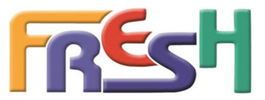SDG 1- No Poverty: A summary of how the FRESH Framework and school programs can help to achieve and monitor this UN Goal
This summary explains how various school-based and school-linked programs support global actions to achieve this goal.
The achievement of this goal involves seven sectors; including Development Aid, Welfare/Social Protection, Finance/Taxation, Employment, Early Childhood Education/Care, K-12 Education and Post-Secondary Education & Training, The FRESH Framework and other sources enables us to identify six school programs and four multi-component approaches as well as the indicators related to those school strategies, Five (TBA) global initiatives involving schools as a key partner in achieving this goal have also been identified in this summary.
The Global Partnership for Education has noted that "according to UNESCO, 171 million people could be lifted out of poverty - a 12% drop in global poverty - if all students in low-income countries left school with basic reading skills.UNESCO also found that one extra year of schooling increases an individual's earnings by up to 10%, and each additional year of schooling raises average annual gross domestic product by 0.37%.
This summary explains how various school-based and school-linked programs support global actions to achieve this goal.
The achievement of this goal involves seven sectors; including Development Aid, Welfare/Social Protection, Finance/Taxation, Employment, Early Childhood Education/Care, K-12 Education and Post-Secondary Education & Training, The FRESH Framework and other sources enables us to identify six school programs and four multi-component approaches as well as the indicators related to those school strategies, Five (TBA) global initiatives involving schools as a key partner in achieving this goal have also been identified in this summary.
The Global Partnership for Education has noted that "according to UNESCO, 171 million people could be lifted out of poverty - a 12% drop in global poverty - if all students in low-income countries left school with basic reading skills.UNESCO also found that one extra year of schooling increases an individual's earnings by up to 10%, and each additional year of schooling raises average annual gross domestic product by 0.37%.
|
Excerpts from UN Description of this Goal:
Goal 1 calls for an end to poverty in all its manifestations by 2030. It also aims to ensure social protection for the poor and vulnerable, increase access to basic services and support people harmed by climate-related extreme events and other economic, social and environmental shocks and disasters. Expanding social protection programmes and targeting appropriate schemes to the poor and most vulnerable can further reduce poverty. Social protection programmes include social assistance, such as cash transfers, school feeding and targeted food assistance, as well as social insurance and labour market programmes, including old-age pensions, disability pensions, unemployment insurance, skills training and wage subsidies, among others. Read more >> |
School Approaches and Programs that address this Goal:
There are several school multi-intervention programs and single interventions that alleviate poverty. These programs are often grouped and coordinated in these multi-component approaches:
Schools help to develop these skills, beliefs, attitudes and values within students related to this goal:
|
|
Current & Recent Global/UN Initiatives to Achieve this Goal:
Recent and ongoing events and initiatives include:
|
Current & Recent Global School Initiatives related to this Goal:
Recent and ongoing events and initiatives include:
|
|
Overview of UN Targets for this Goal:
1.1 By 2030, eradicate extreme poverty for all people everywhere, currently measured as people living on less than $1.25 a day 1.2 By 2030, reduce at least by half the proportion of men, women and children of all ages living in poverty in all its dimensions according to national definitions 1.3 Implement nationally appropriate social protection systems and measures for all, including floors, and by 2030 achieve substantial coverage of the poor and the vulnerable 1.4 By 2030, ensure that all men and women, in particular the poor and the vulnerable, have equal rights to economic resources, as well as access to basic services, ownership and control over land and other forms of property, inheritance, natural resources, appropriate new technology and financial services, including microfinance 1.5 By 2030, build the resilience of the poor and those in vulnerable situations and reduce their exposure and vulnerability to climate-related extreme events and other economic, social and environmental shocks and disasters 1.a Ensure significant mobilization of resources from a variety of sources, including through enhanced development cooperation, in order to provide adequate and predictable means for developing countries, in particular least developed countries, to implement programmes and policies to end poverty in all its dimensions 1.b Create sound policy frameworks at the national, regional and international levels, based on pro-poor and gender-sensitive development strategies, to support accelerated investment in poverty eradication actions |
School-Related Indicators from the FRESH Framework & School Programs/ Approaches
The following indicators are included in the FRESH Framework, its thematic applications on various health, social, safety and economic problems and other sources or updates on the FRESH Monitoring and Evaluation Guidance. The indicators describe the type, frequency and data sources of monitoring that can be done. As well, the FRESH Framework provides suggestions for monitoring at the national and school levels. School Feeding Programs
As well, the progress being made in relation to the implementation and maintenance of these core components and cross-cutting themes in the FRESH Framework can be monitored in relation to this goal: These school-related organizational and systems capacities should also be monitored in relation to this goal:
Additional Funding/Staffing for Schools & Services in deprived regions or communities
|
